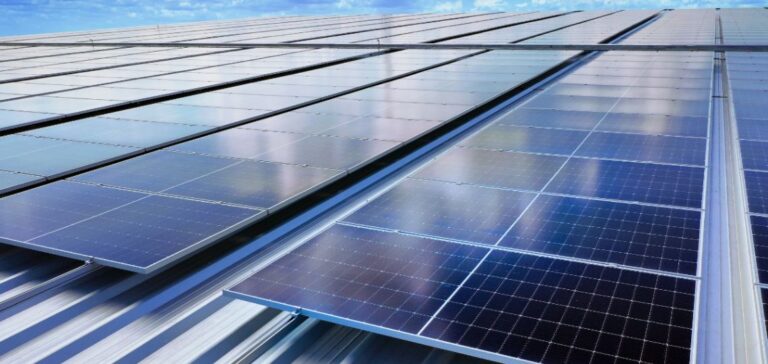TotalEnergies ENEOS has recently commissioned a 1.9 megawatt-peak (MWp) photovoltaic (PV) system at SteelAsia’s Meycauayan facility in Bulacan, Philippines. This project marks a significant step in SteelAsia’s decarbonisation strategy, as the country’s leading rebar manufacturer and one of the largest global producers of steel. The installed system includes more than 3,200 solar modules, generating approximately 2,700 megawatt-hours (MWh) of renewable electricity annually.
Under a 10-year agreement, TotalEnergies ENEOS fully funded, installed, and will operate the solar system for the duration of the agreement. SteelAsia will purchase the electricity generated without any upfront investment costs. This project is expected to reduce SteelAsia’s carbon footprint by about 2,300 tons of CO2 annually, while also offering significant savings on energy costs.
The photovoltaic system at SteelAsia is part of a broader effort to integrate renewable energy into its operations. Two other SteelAsia plants—the Calaca green steel manufacturing plant and the Compostela rolling mill in Cebu—are already powered by geothermal energy.
The project with TotalEnergies ENEOS was welcomed by Andre Sy, President of SteelAsia, who noted that “sustainability is at the core of our vision for the future of steel manufacturing.” Ingrid Jaumain, Zone Director at TotalEnergies ENEOS Renewables Philippines Project Corp., stated that the project underscores the company’s commitment to supporting the Philippine steel sector’s transition to a more sustainable industry.
A strategic collaboration for decarbonisation
This photovoltaic project is part of SteelAsia’s efforts to integrate renewable energy sources and reduce its greenhouse gas emissions. The partnership with TotalEnergies ENEOS allows SteelAsia to meet its carbon footprint reduction target while maintaining a stable and cost-effective energy supply.
The initiative comes amid a broader trend where many companies in the steel sector are seeking to optimise their energy efficiency while meeting growing sustainability demands. The choice of solar power, combined with the geothermal energy already used by SteelAsia, illustrates the company’s commitment to diversifying its energy sources and reducing its reliance on fossil fuels.
The financing model, which involves no initial costs for SteelAsia, also reflects a shift in renewable energy partnerships, where investors fund long-term projects in exchange for fixed-price electricity purchases. This allows companies to focus on their core activities while benefiting from cost-effective and eco-friendly energy solutions.
Impact on the steel sector in the Philippines
SteelAsia’s project could serve as a model for other companies in the steel sector in the Philippines, a market where energy costs are often high and environmental concerns are increasing. The transition to more sustainable energy sources in this sector could have beneficial effects on the local industry’s competitiveness while contributing to global carbon emission reduction goals.
With the continued growth in global demand for steel and pressure to reduce the environmental impact of production, steel companies in the Philippines may be encouraged to follow SteelAsia and TotalEnergies ENEOS’s example to diversify their energy mix. These initiatives could play a key role in developing a greener, more competitive steel industry in the region.






















